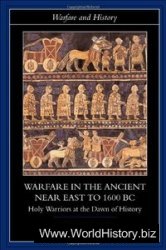A parallel development occurs in the Greek philosophical thought that was beginning to develop at about this same time in Ionia. Xenophanes of Colophon, a poet writing in the mid-sixth century, provides our earliest preserved references to Homer and Hesiod as representatives of their poetic tradition, and these mentionings occur only so that he can denounce the theological systems that these early poets had helped develop. According to Xenophanes, ‘‘Homer and Hesiod attributed to gods all the things which are shameless and worthy of blame among men, and they voiced aloud many of the gods’ unjust deeds - stealing, adultery, and deception of each other’’ (fr. 11 DK). A half century later, the comments of Heraclitus are perhaps even harsher: although he was the wisest of the Greeks, Homer himself made mistakes concerning the knowledge of manifest things (fr. 56 DK) and was to be ‘‘thrown out of the contests and whipped’’ (fr. 42 DK), presumably because of the influence that traditional ideas held through performances in such arenas.
In his own time, Plato - a seeming admirer of Homer if his 150 or so quotes of the author are any indication (Richardson 1992: 34-5; cf. Howes 1895 and pseudo-Longinus On the Sublime 13.3-4) - also wished to do away with Homer and the hold that his poetic tradition had on people’s minds. With specific references to the Iliad and the Odyssey., Plato describes Homer’s works as dangerous because of their representation of death as an evil and of important characters as being able to be overcome by emotions; such depictions would be ineffective in shaping defenders of the city (Rep. 376e-383a; cf. Lamber-ton 1997: 36). Further, the mimetic nature of epic required a certain separation from the realities of life, and this removal caused such poetry to be useless as a tool for perceiving actual truth and (even worse) misleading in its claims (Rep. 595a-601b). Nowhere are Plato’s views on the worthlessness of epic put forth more clearly than in his Ion, where a rhapsode skilled in performing Homer - who is represented as the best of all poets (530b, 531d) - professes himself to be an expert in the matters of which he sings, only to have Socrates show that in fact he knows nothing but to sing in an aesthetically pleasing and divinely inspired way. For Plato, then, as well as for Xenophanes and Heraclitus before him, epic poetry has become the traditional standard against which new claims to truth must be argued, and Homer himself has become the most common personification of this worldview.
However, this philosophical antagonism toward epic begins to fade even by the time of the next generation, and in Aristotle there is little trace of Plato’s direct attacks against Homer. Aristotle does conclude in his Poetics that epic is inferior to tragedy, but nevertheless his admiration for Homer in particular is made clear not only by the more than 100 times he quotes the poet in his extant works (Richardson 1992: 36) but also by the fact that he attempted to rescue Homer from the toughest charges of his critics through a collection of Homeric Problems. Though the preserved remains of the collection cannot be trusted as the authentic work of Aristotle himself, it is clear that this collection set a precedent for later criticism by actually systematizing the methods that could be used to make sense of the details of the Homeric texts on historical, moral, or political grounds (Richardson 1992: 36-7; Lamberton 1997: 37). Additionally, as Lamberton (1997: 37) has pointed out, Aristotle often looked to the poetry of the past in order to find the seeds of philosophical thought that would be developed by later thinkers. Therefore, when Aristotle (De an. 427a) quotes Empedocles’ statements on thought and perception and equates them to a similar statement from the Iliad, it seems as if Homer has become as much of a proto-philosopher as he was a poet. (Cf. also Cherniss 1935: 80.)
In turn, if ancient testimonia from authors such as Cicero and Plutarch can be believed, the early Stoics also took up this practice ofattempting to find hidden philosophical truths in the works of early Greek poets, especially Homer and Hesiod. According to the usual understanding of Stoic practice, early poets were taken as having a correct understanding of the world, its physics, and its gods but then deliberately disguising this knowledge within epic narratives about unrelated topics. Stoics found it necessary to allegorically interpret these works - often with the help of etymologies - in order to demonstrate that Homer and his ilk were indeed proponents of Stoic thought. This traditional conception of how the Stoics proceeded has recently been called into question, as the Stoics may have been interested in understanding myths in general as allegories to be interpreted more than they were concerned with a single poet’s treatment of them in a specific text (Long 1992). However, for most Stoics, epic undoubtedly constituted an invaluable source of information to be searched for hidden meanings and underlying truths concerning the world and its workings (see Lamberton 1997: 38). Clearly, epic poetry had been fully transformed from an early traditional model to be argued against into a representation of truth that must be searched carefully for the authoritative knowledge it embodied.




 World History
World History









